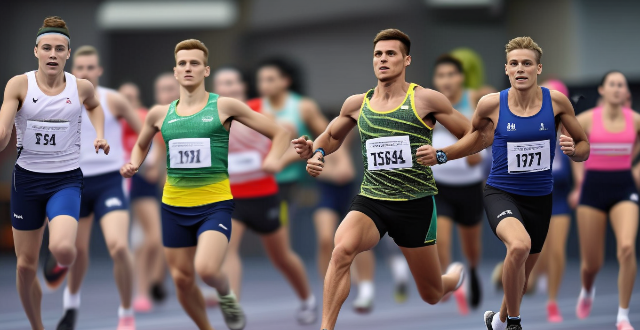Sport psychology counseling provides athletes with numerous benefits, including improved performance, stress management, mental toughness, enhanced team dynamics, and personal growth. Athletes can develop better focus, confidence, and goal-setting abilities, learn to manage anxiety and pressure, cope with adversity, and improve communication and leadership skills within their teams. Additionally, sport psychology counseling promotes self-awareness, life skills, and balance in an athlete's life. Seeking the help of a sport psychology professional can significantly contribute to an athlete's overall well-being and success in their sport.

Benefits of Sport Psychology Counseling for Athletes
Sport psychology counseling, also known as sport psychology or mental coaching, is a specialized form of counseling designed to help athletes improve their performance, manage stress, and overcome various psychological barriers. Here are some of the key benefits that athletes can gain from seeking sport psychology counseling:
Improved Performance
- Focus and Concentration: Sport psychology helps athletes develop better focus and concentration during training and competitions.
- Confidence Building: Through counseling, athletes can build self-confidence and belief in their abilities.
- Goal Setting: Athletes learn how to set realistic and achievable goals, which can lead to improved performance.
Stress Management
- Anxiety Reduction: Sport psychology counseling can teach athletes techniques to reduce anxiety and manage pre-competition nerves.
- Pressure Management: Athletes learn how to handle the pressure of high-stakes situations and perform under stress.
- Recovery from Setbacks: Counseling helps athletes recover more quickly from injuries or poor performances.
Mental Toughness
- Adversity Coping: Athletes develop resilience and the ability to cope with adversity, such as losing a competition or facing criticism.
- Pain Tolerance: Sport psychology can enhance an athlete's pain tolerance and ability to push through physical discomfort.
- Persistence: Counseling encourages athletes to persist in the face of challenges and not give up easily.
Team Dynamics
- Communication Skills: Sport psychology can improve communication within teams, leading to better collaboration and teamwork.
- Conflict Resolution: Athletes learn skills to resolve conflicts effectively, maintaining a positive team environment.
- Leadership Development: Sport psychology can help athletes develop leadership skills, benefiting both individual performance and team dynamics.
Personal Growth
- Self-Awareness: Counseling increases self-awareness, allowing athletes to understand their emotions and motivations better.
- Life Skills: The skills learned in sport psychology counseling, such as goal setting and perseverance, can be applied to other areas of life.
- Balance: Athletes learn how to balance their sporting commitments with other aspects of life, such as education, work, and personal relationships.
In conclusion, sport psychology counseling offers a wide range of benefits for athletes, from improving performance and managing stress to enhancing team dynamics and fostering personal growth. Seeking the guidance of a sport psychology professional can be a valuable investment in an athlete's overall well-being and success in their chosen sport.